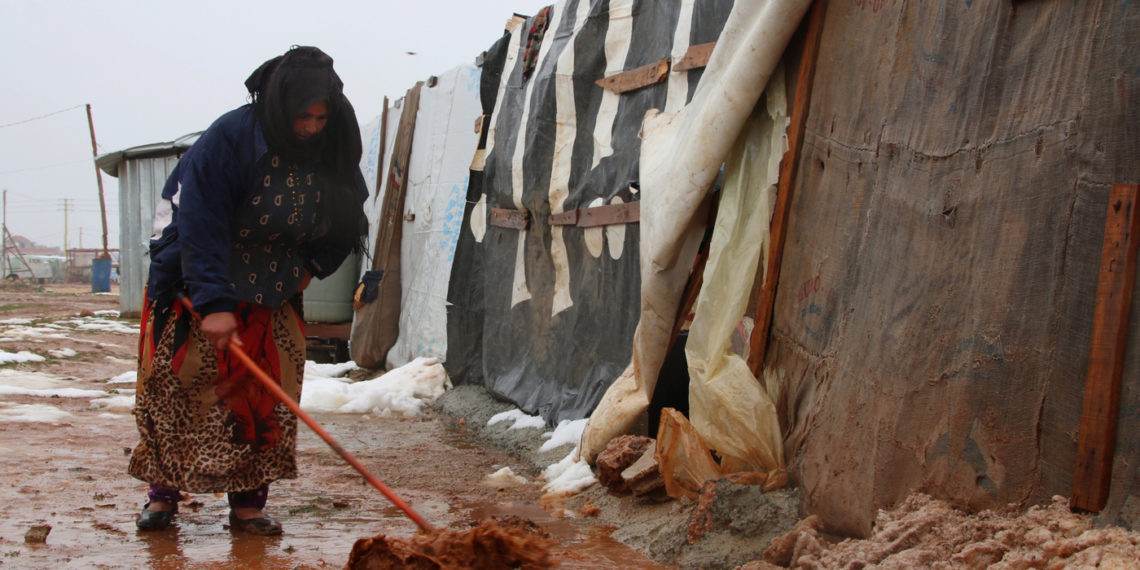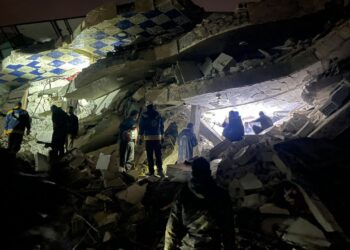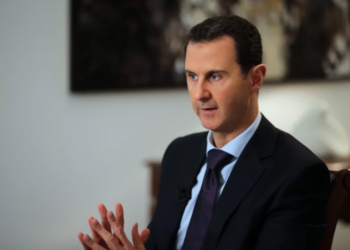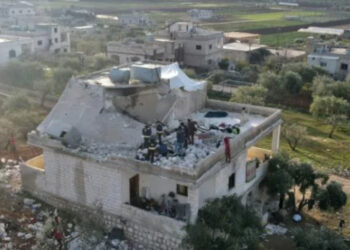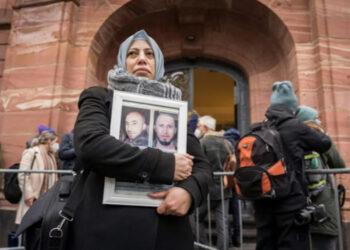Since the Syrian uprising and following war eight years ago, over one million Syrians have fled to neighboring Lebanon. They live in makeshift camps with poor infrastructure and tents housing. Earlier this month, storm Norma hit over 547 of those settlements, endangering over 22,000 refugees. A week later, storm Miriam followed, affecting another 23,000 refugees in 626 different sites.
Although many local and international NGOs started preparing for the winter season by distributing winter clothes, boots, and blankets ahead of time, storms Norma and Miriam caused the situation to deteriorate quickly.
In Bar Elias, one of the refugee settlements in the Beqaa Valley in eastern Lebanon, the storms exacerbated the overflowing of the Litani River, the country’s biggest and longest river. The river – sometimes called “Death River” – is polluted and blocked due to unfiltered waste from factories and dumped sewage. The river overflows every winter, causing the nearby refugee camps to flood too.
Local NGOs Take Responsibility
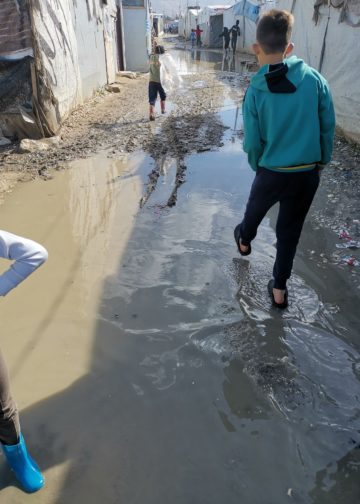
In the immediate aftermath, it was local NGOs rather than the large international aid agencies that deployed assistance with impressive efficiency considering their scarce resources. Numerous volunteers helped, willing to use their days off to help the affected Syrian refugees.
As one of us is a volunteer on the ground supporting the local NGO Syrian Eyes, as well as both of us being part of a vast network of activists, we were able to talk to the people who were present during the storms and involved in the aftermath.
“The only solution was to reallocate the camps and move them away from the river, which is a very complicated issue,” Omar Trad told us, monitoring and evaluation officer at the local NGO Basmeh and Zeitooneh for Relief and Development. “[But] the head of the Bar Elias council said that the camps would flood regardless of what we do, as these camps are too close to the river.”
Indeed, parts of the informal settlements soon found themselves completely under water and had to be evacuated. The first immediate response taken by different local NGOs was to open their centers and prepare them as emergency shelters.
One such NGO, Sawa for Development and Aid, “opened its six centers and prepared them to host people who had to be evacuated from the flooded camps,” said Mashal Hamood, the NGO’s operations manager.
“As a small NGO, we don’t have a warehouse to store items like mattresses and blankets, so we tried to ask international NGOs for help. They didn’t answer our calls or reply to our messages, so we started to raise funds and bought the needed relief items immediately.”
Hamood added that international NGOs only started taking actions on the third day when the storm already began to fade. “They should have a plan for intervention at least for us if they do not want to take immediate actions. They have the big warehouses with the needed resources. We don’t.”
Small Budgets and Families’ Data
Local NGOs face challenges with their small budgets and no access to information or records, and U.N. agencies only work through international NGOs who are in charge of the refugees’ records.
Due to the lack of communication during storm Norma, this information was not available on the first day of the extreme weather. “The families’ data is only shared with [international] NGOs, which are U.N. partners,” said Anas Tello, a volunteer with Women Now for Development.
“We faced issues to react quickly as the camps are random and we have no records about all the settlement locations or the number of families in each camp. The only way to help was by opening our centers.” Many of the settlements are informal. Families rent land where they set up their tents.
Anas added that when they were finally able to reach the families and tried to move them to safety, many of them were afraid of losing their housing after being told that they might lose the land if they leave. “They decided not to leave, even if it meant the tents would flood and would be at risk of collapsing.”
After the first storm, the U.N. refugee agency sent text messages to refugees, sometimes in English only, warning them about a second expected storm and asking them to prepare by putting on heavy clothes and protecting their valuables and documents by placing them above ground.
Messages , sometimes in English only, were sent by UNHCR in #lebanon to #refugees living in tents offering "innovative" tips to get prepared for the upcoming storm on Monday. Could someone @UNCoISyria explain to me how this could help in this situation?see photos.@Refugees pic.twitter.com/HMGnAeUAUZ
— Sama Kiki سما كيكي (She/Her) (@samaKiki88) January 12, 2019
“I don’t think the message was necessary,” said Ahmed Abo Shar, a programs manager at Mulham Volunteering Team. “They should have negotiated with the Lebanese government to find a sustainable solution. It was a shame for an agency with the size and budget of the UNHCR to send such a message.”
UN and International NGOs Should Coordinate
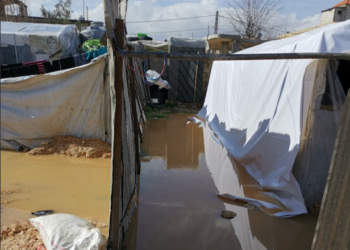
Local NGO workers and volunteers explained that the struggle will not end when the storm is over. There will be a huge need for preparing tents for the people to get back to and try to manage again after losing their belongings in the storm.
New waterproof plastic sheeting to cover the shelters would help, and there is a need to raise the floor level under and around the tents by casting a thin layer of concrete. However, the Lebanese government has restricted how much the tents can be raised. Finally, medical support was slow to arrive when the crisis peaked.
Whether in Lebanon or elsewhere, local NGOs with meager resources, capacities, and employees often act as first responders and share refugee struggles first-hand. To justify the far greater support U.N. agencies and international NGOs enjoy, they need to increase their ability to reply to emergency calls on the very first day of crises like storms Norma and Miriam.
They should coordinate with and support the local NGOs that are already at the site. Otherwise, the deteriorating situation of Syrian refugees in Lebanon will continue as an endless cycle that during every winter season reaches a peak of emergency.
Sana Kikhia is a Syrian activist, humanitarian worker, and researcher living in London. She is co-founder and Executive Director of Sanad Group for Aid and Development in Syria, a voluntary group offering zero-interest loans to internally displaced persons inside Syria. She holds an MSc. in Global Project Management.
Dara Foi’Elle (pseudonym due to political work) is a Syrian diaspora activist and blogger based in Beirut, Lebanon. She currently works for the Syrian League for Citizenship. Dara was present during the crisis in Beqaa Valley and volunteered with Syrian Eyes, a local NGO active in several settlements. She holds an LLM in International Criminal Justice and Armed Conflict.
Disclaimer: The views and opinions expressed here are those of the author and do not necessarily reflect the editorial position of The Globe Post.

